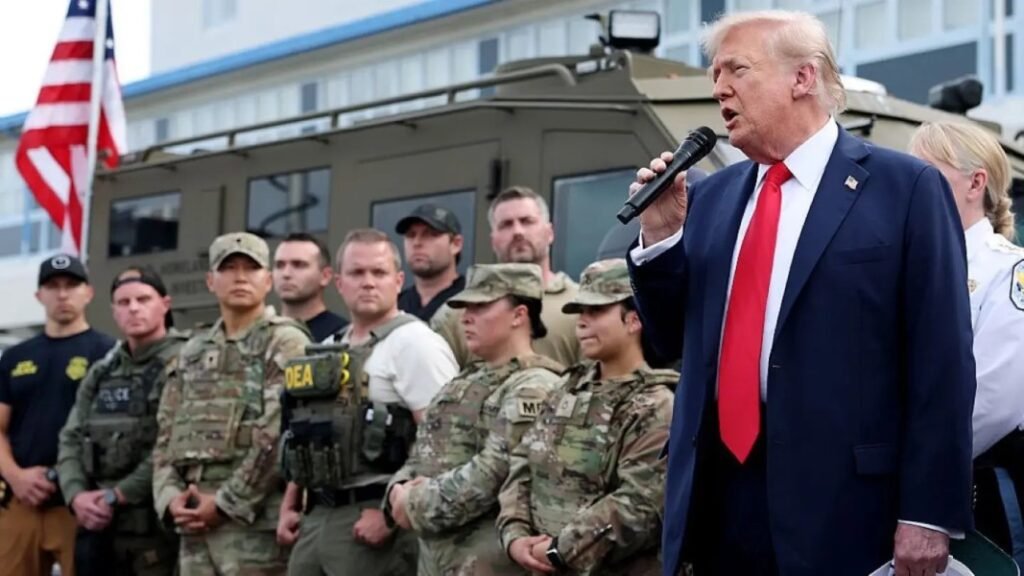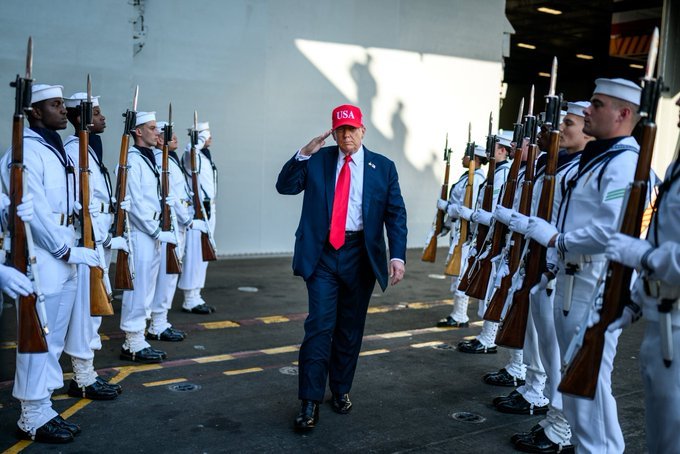In a major legal development, a federal judge has blocked former President Donald Trump’s attempt to deploy the National Guard to Portland during ongoing protests. The Trump National Guard Ruling marks a crucial moment in the ongoing debate between federal authority and states’ rights, reigniting discussions about civil liberties, executive power, and the limits of federal intervention in domestic unrest.
The Background of the Portland Protests
The protests in Portland began as part of the nationwide outcry against police brutality following the death of George Floyd. What started as peaceful demonstrations soon escalated into clashes between protesters and federal officers. The city became a focal point for debates around civil unrest and federal response.
Trump’s administration justified the National Guard deployment as a necessary step to restore law and order, citing threats to federal property and rising violence. However, Oregon state officials and local leaders criticized the move, calling it an overreach that could worsen tensions instead of easing them. The Trump National Guard Ruling later questioned this justification, emphasizing constitutional boundaries around such federal actions.
The Judge’s Decision and Its Impact
The federal court’s decision stated that Trump’s deployment order violated constitutional principles that protect state sovereignty. According to the ruling, the federal government cannot unilaterally send armed forces into a state without the governor’s consent unless a state’s institutions have collapsed completely.
This judgment sets a significant precedent, emphasizing that even the president must respect constitutional limits when invoking federal power. Legal analysts believe the Trump National Guard Ruling will influence how future administrations handle civil unrest and the use of military forces within U.S. borders.
Federal vs. State Authority
This case highlights a longstanding tension in American governance the balance of power between the federal and state governments. While the federal government holds the authority to enforce national laws, states possess their own rights to maintain internal peace and order.
Legal experts have drawn comparisons between this ruling and earlier cases involving presidential authority during domestic crises. It reinforces the notion that state consent remains crucial before deploying federal forces, even during emergencies. Many see the Trump National Guard Ruling as a victory for state autonomy and democratic checks and balances.
Political Reactions Across the Country
Reactions to the ruling have been deeply divided. Supporters of the decision view it as a reaffirmation of constitutional democracy and state rights. They argue that unchecked federal intervention could set a dangerous precedent, allowing future presidents to use the military for political motives.
Trump’s supporters, however, claim the decision undermines the federal government’s ability to protect citizens when local authorities fail. They argue that the deployment was necessary to maintain order during a period of chaos and that the ruling may embolden violent protests in the future.

Legal Analysts and Public Opinion
Legal scholars point out that this case will likely be cited in future debates over presidential emergency powers. The Posse Comitatus Act, which restricts the use of the military in domestic law enforcement, plays a central role in this discussion. The court reaffirmed that this law exists to prevent political misuse of armed forces within the country.
Public opinion remains mixed. While many Americans support maintaining law and order, they also express concerns about military involvement in civilian protests. The Trump National Guard Ruling underscores the importance of maintaining clear legal boundaries to preserve democracy.
The Broader Implications for Democracy
This ruling also revives conversations about civil liberties and the role of federal intervention in protests. Activists believe it protects the right to peaceful assembly, ensuring that citizens can voice dissent without fear of military suppression.
At the same time, the decision challenges future administrations to find alternative strategies for dealing with large-scale demonstrations. Instead of relying on force, experts suggest that federal and local collaboration, community engagement, and police reform can better address the root causes of unrest.
Looking Ahead
The blocked deployment order may not be the end of this legal battle. Trump’s legal team has hinted at appealing the decision, potentially taking it to the Supreme Court. If the appeal proceeds, the case could become a defining moment for interpreting the limits of presidential authority in domestic matters.
This situation also sheds light on how political narratives are shaped around power, governance, and accountability. It resonates beyond Portland, reminding citizens that democracy relies not only on elections but also on legal checks that prevent any branch of government from exceeding its authority.
Connecting the Dots: Lessons from Other Leadership Decisions
This case invites reflection on broader patterns of leadership and governance. Political decisions, whether about deploying military forces or implementing major economic reforms, often have far-reaching effects. For instance, just as the GST Reforms Big Relief to Middle Class 2025 story showcased government efforts to ease economic pressure on citizens, the Trump National Guard Ruling highlights the judiciary’s role in balancing power and protecting people’s rights.
Similarly, understanding leadership styles, as seen in Gavin Newsom: California’s 40th Governor and His Story, helps us evaluate how governance approaches differ between enforcing control and upholding freedom.
Conclusion
The federal judge’s decision to block Trump’s National Guard deployment to Portland is more than a courtroom victory; it’s a reminder of the enduring strength of American democracy. The Trump National Guard Ruling reaffirms that the rule of law stands above political authority and that state rights must be respected even during national crises. As the nation continues to grapple with issues of civil unrest and governance, this case will likely remain a touchstone for years to come symbolizing the fine balance between power and liberty.








